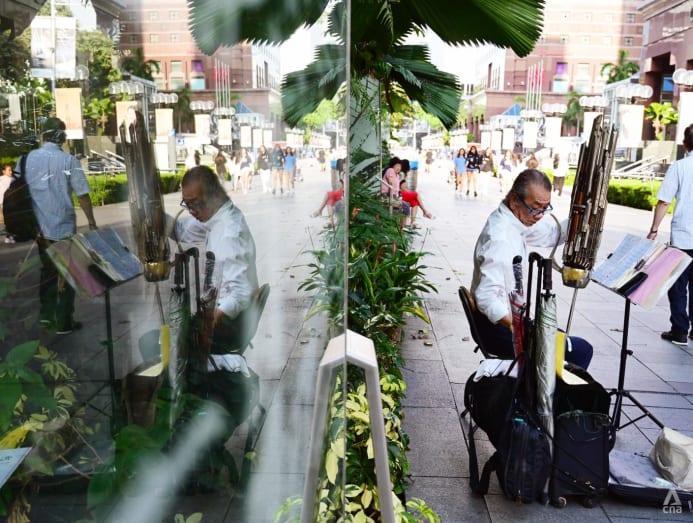The Orchard Road busker whose traditional Chinese instrument has a 3,000-year history
Busker Michael Lee is a familiar figure on Orchard Road, playing 6-8 hours every day on an ancient Chinese instrument few might recognise. A professional performer all his life, he tells CNA Lifestyle how his passion for the sheng took him beyond Singapore’s shores and back.
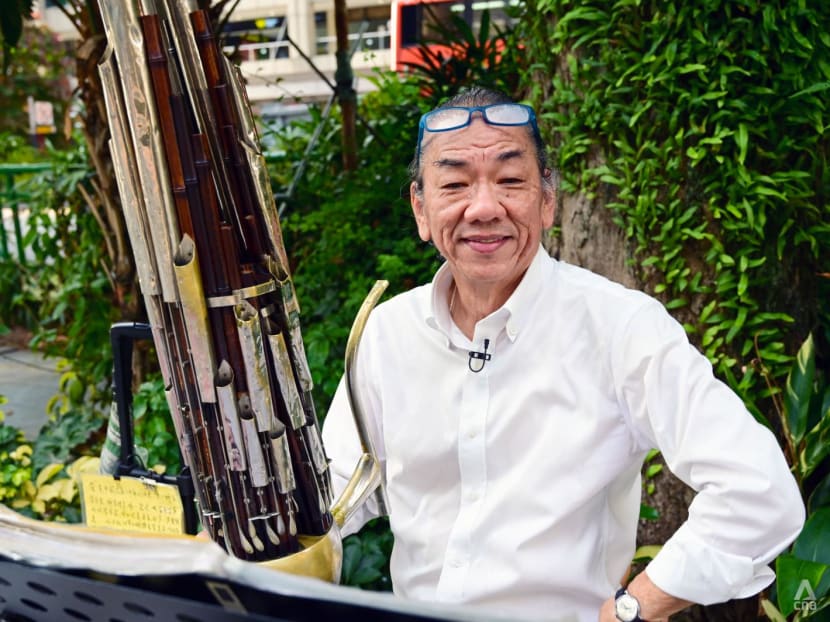
Michael Lee posing for a photo with his sheng - a Chinese woodwind instrument. (Photo: CNA/Try Sutrisno Foo)

This audio is generated by an AI tool.
Every day on the Orchard Road thoroughfare, in front of Wisma Atria or Takashimaya, busker Michael Lee unpacks an instrument few would be familiar with – a cluster of several dozen bamboo and metal pipes large and small, the metal looking distinctly hand-hammered.
He raises the instrument to his lips and takes a deep breath. His weathered fingers moving over the holes on the pipes, Secret Garden’s You Raise Me Up flows from the instrument, with a few improvised jazz-inspired turns. As he continues to play, the crowd around him grows.
The 69-year-old has been a staple on Singapore's busking scene for the past nine years, and his chosen instrument is the sheng, an instrument with a 3,000-year history.
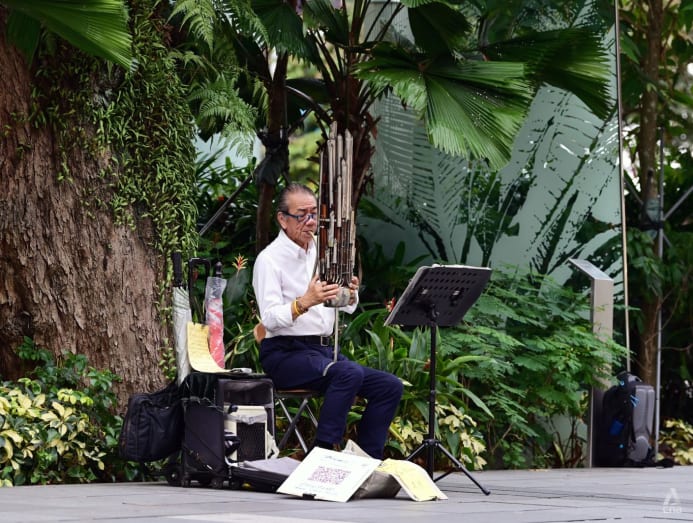
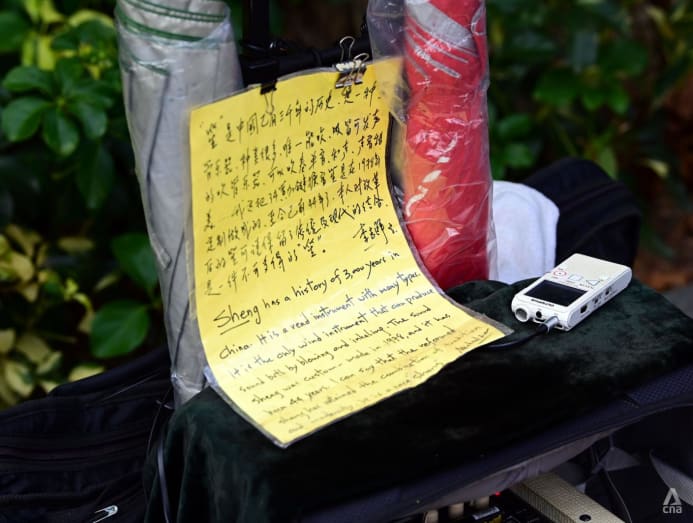
For Lee, the sheng’s standout feature is its ability to adapt to Western musical styles. He likens the traditional Chinese instrument to a saxophone. Unlike the saxophone, which can play only one note at a time, musicians can play several notes simultaneously on the sheng.
The sheng that Lee performs with is custom-made for him by a Beijing-based professional. In contrast to traditional shengs, which are smaller and made solely with bamboo pipes, Lee's custom-made instrument is larger, and has a combination of bamboo and metal pipes.
“This modified version allows me to play a richer tonal quality, different from the other shengs where the tunes come off slightly more nasal sounding,” Lee said.
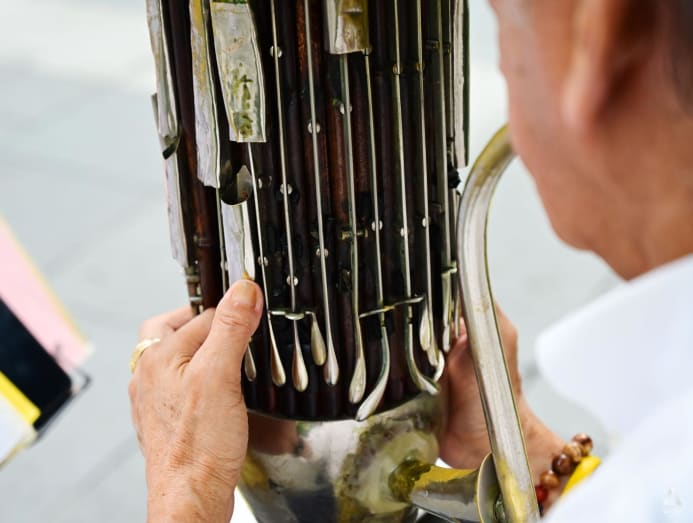
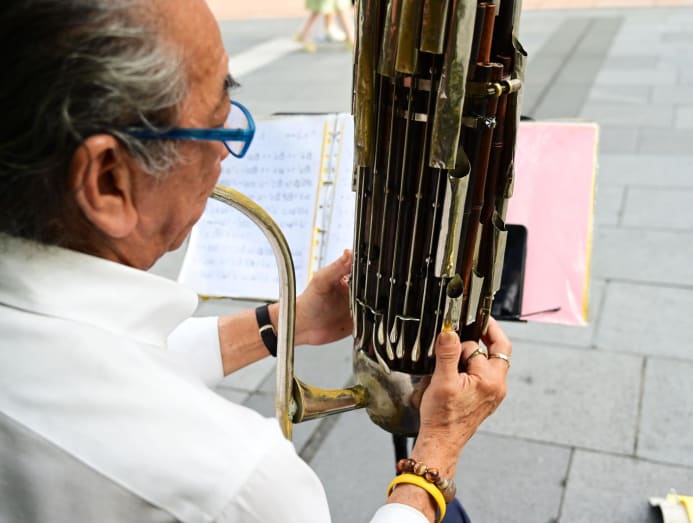
Lee owns six different shengs, each with unique and different musical capabilities. He also has a vast collection of other instruments, including the saxophone, flute, clarinet, keyboard and erhu, to name a few.
“I HAD TO LEARN EVERYTHING ON MY OWN”
Since young, Lee has had a profound love for music. He recounts playing the harmonica as a student at Guanghua Primary School. It was during this time that he first came across the sheng.
“I was walking home from school and I chanced upon a group of performers playing the sheng at the community centre near my house in the Geylang neighbourhood,” he recounted.
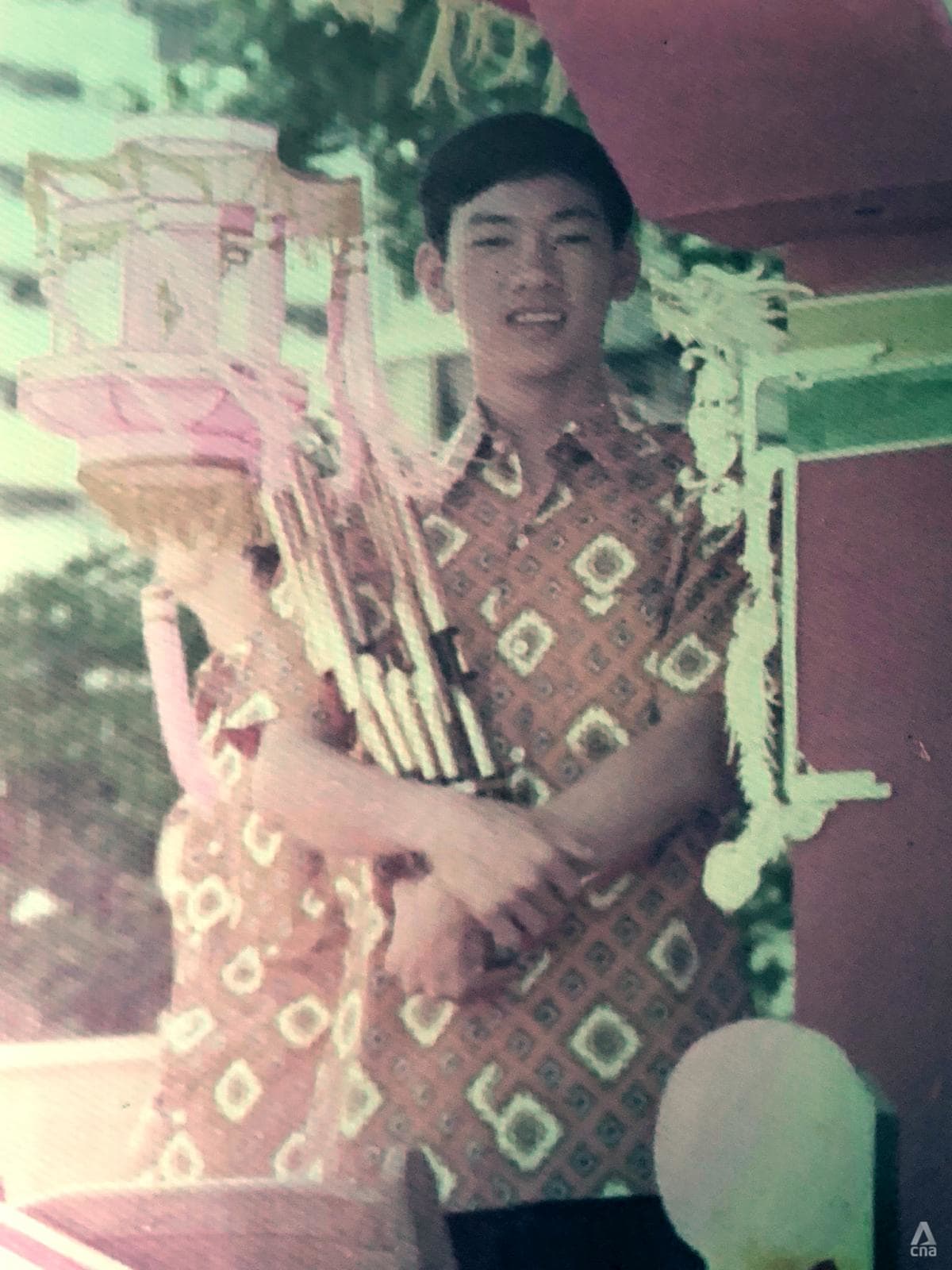
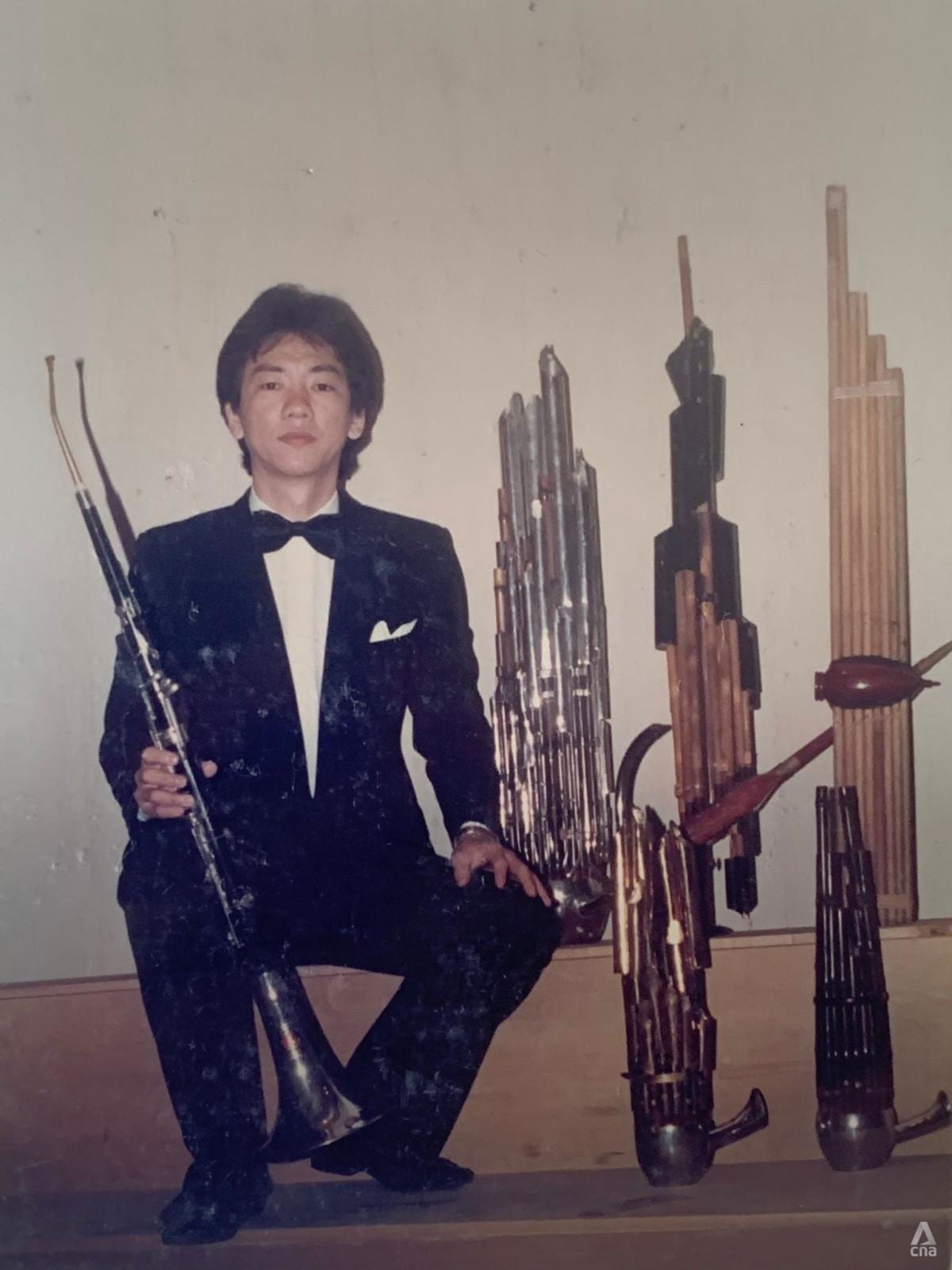
Intrigued by the instrument, he persuaded his father to buy him vinyl records, which he would listen to and learn from.
“There were not many resources available back then. I had to learn everything on my own.”
Through practice, Lee’s fingers found their place on the sheng. Within a year, he could play it fluently.
His career as a performer started to take off in 1975, after he had just completed National Service. He played the sheng in local music competition Talentime and won first place.
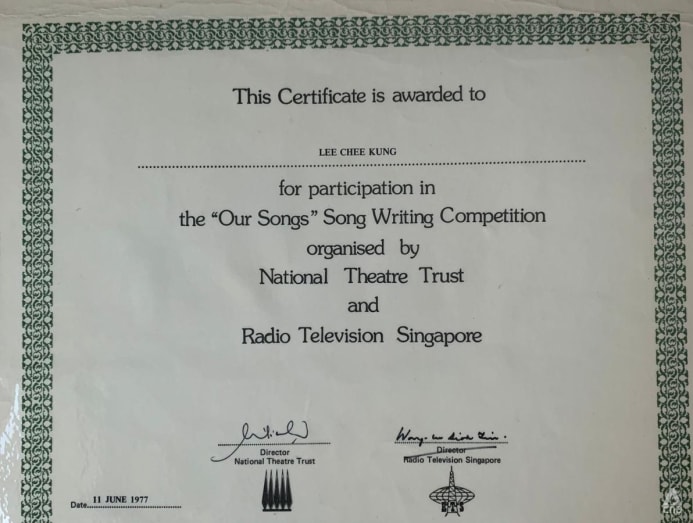
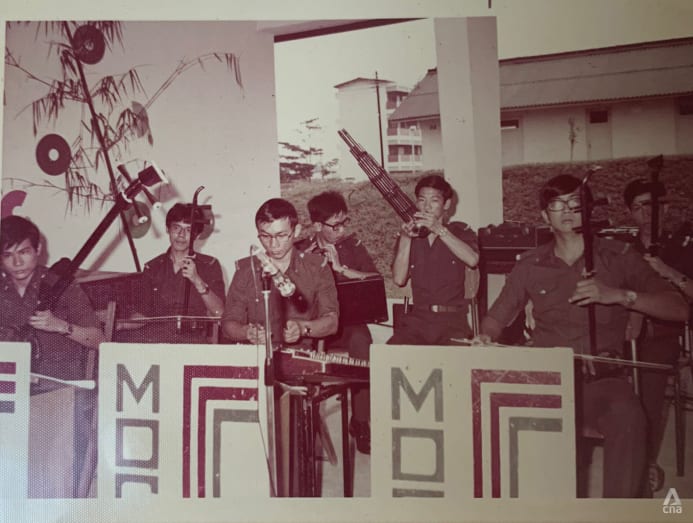
TAKING HIS CAREER BEYOND SINGAPORE
His first real break came when his then-conductor invited him to Hong Kong in 1977. It was the first time he ventured outside of Singapore to join an orchestra. “I was the only foreigner then. I had to make my way up,” Lee said.
Despite the challenges of adapting to a new environment, his perseverance and talent paid off, and he was eventually made section leader.
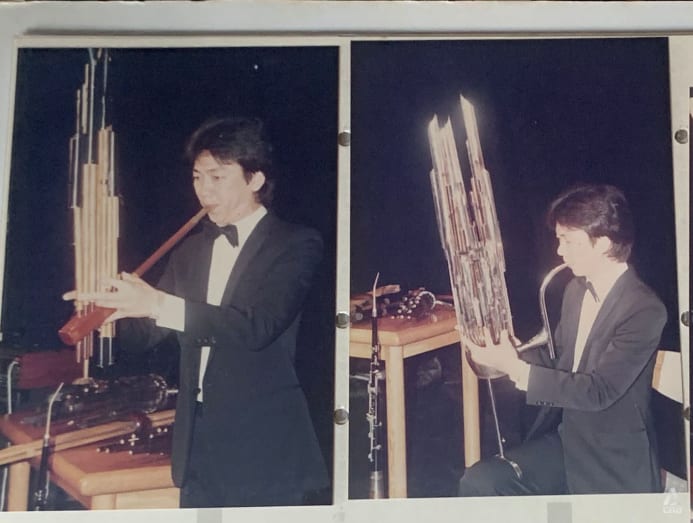
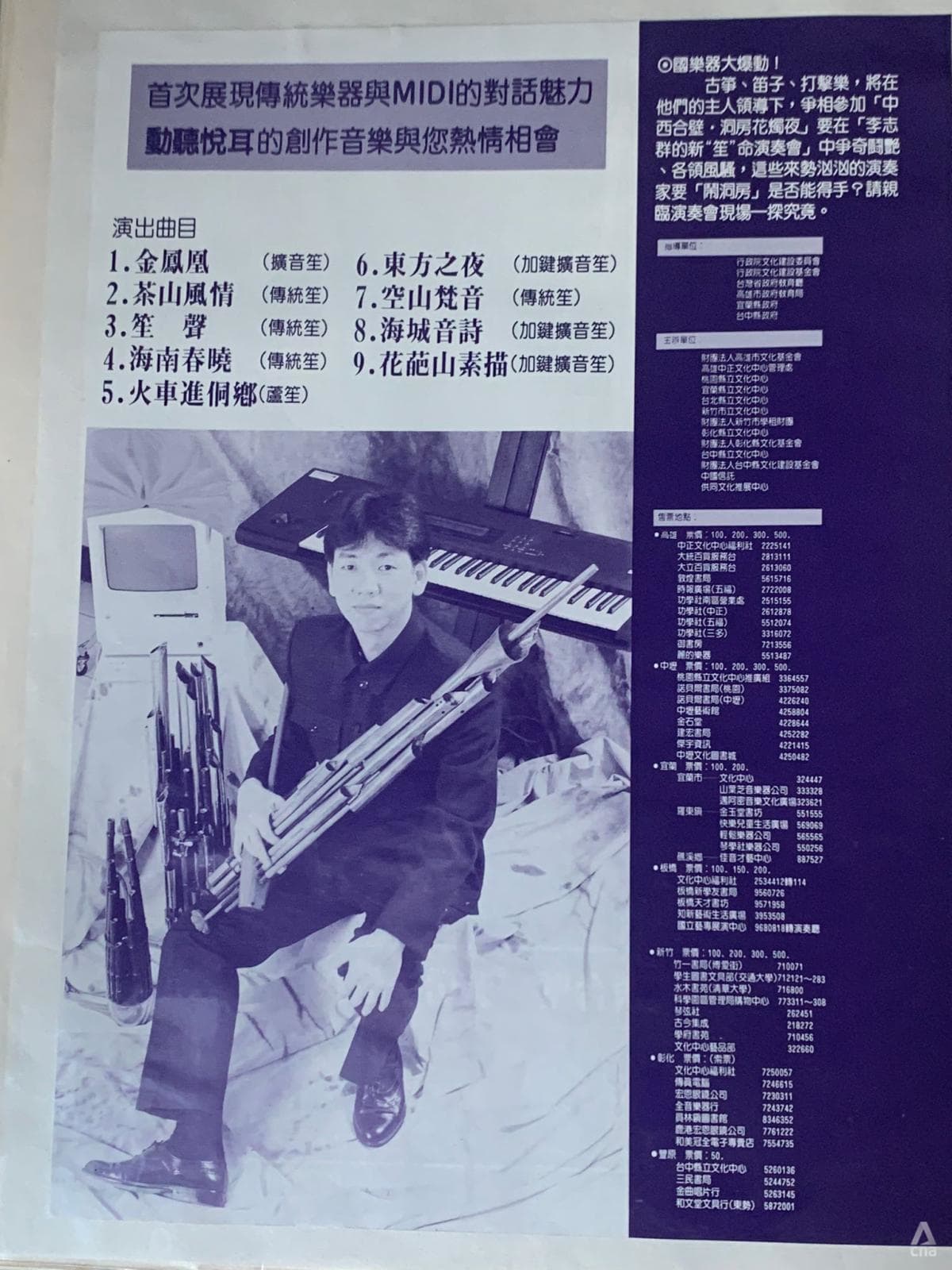
Later, Lee was invited to teach in Taiwan, where he had students of all ages. “Most of my students were only ten years younger than I was,” he recalled.
In 1989, Lee became Kaohsiung Chinese Orchestra’s first concertmaster, leading an ensemble of close to 80 musicians. He held the position for three years before eventually leaving to start his own orchestra.
Eagles Ensemble, or “quan ying shi nei yue tuan”, the orchestra that Lee started in Taiwan in 1992, comprised five to six other musicians. For five years, the orchestra performed at multiple charity events and schools across Taiwan.
Lee's face lights up as he reminisces about his past performances. "In total, we held close to 60 performances. For my encore set, I selected a list of traditional Taiwanese folk songs. Even after the performance, you could hear some of the audience members whistling along to the tunes of this music. That feeling is truly amazing."
“I have given my best performing and teaching stints when I was overseas. Of course, there are definitely areas of improvement when I look back. But I have no regrets.”
.jpeg?itok=kW1ROg3z)
BUSKING ON ORCHARD ROAD
Today, Lee continues to hone his craft, spending five to six hours every day playing his instrument on Orchard Road.
“There is definitely improvement in the local busking scene,” he said. “Besides tourists, a lot of my audience are Singaporeans in their 30s.”
On average, he can make about S$80 to S$100 a day from his busking gig, but this is dependent on the weather. “If it rains, that’s it. It’ll affect my earnings for the day because this area is not sheltered.”
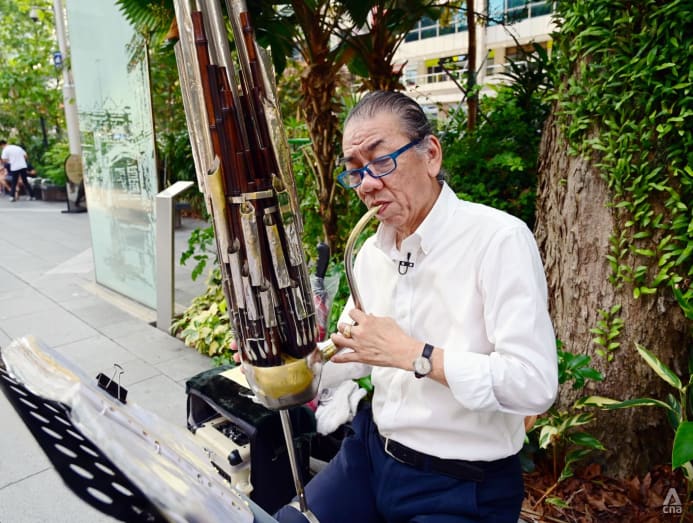
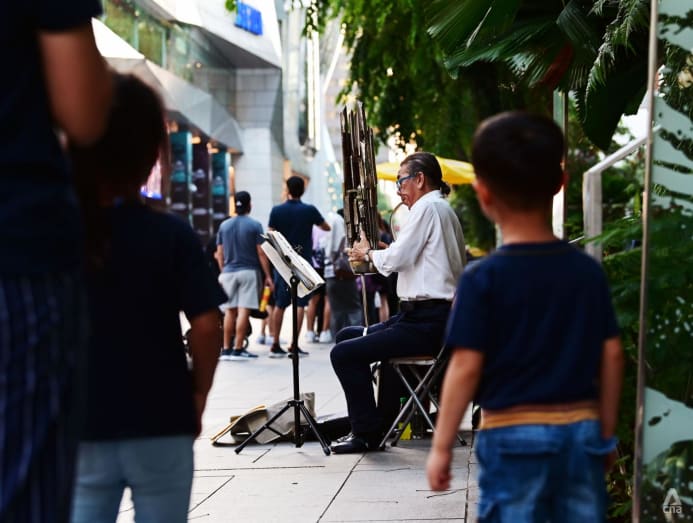
However, he is less sanguine about the opportunities for those inspired to follow his footsteps. “In Singapore, you can’t earn much as a performer,” he said. “Even if I teach the students, where can they go after that? It is very difficult to make a living out of this.”
For now, he finds fulfilment in busking and sharing his music with the public.
Lee has written and composed a few original pieces in the course of his career, but he is selective with his performing repertoire, saying that the bustling streets call for familiar tunes that strike a chord with his audience.
From popular jazz melodies like Kenny G's The Moment and Loving You to renditions of Chinese pop hits like Tong Hua, Lee curates his performance slate meticulously.
“When I play music that is familiar to them, they’ll stop and listen. Most of them will donate money after my performance. Some of them even say that I am the Chinese equivalent of saxophonist Kenny G,” Lee said with pride.
Most of all, Lee finds contentment in bringing joy to others through his music. “When I busk, I am not asking for a huge donation. As long as they are happy listening to my music, I am happy.”
